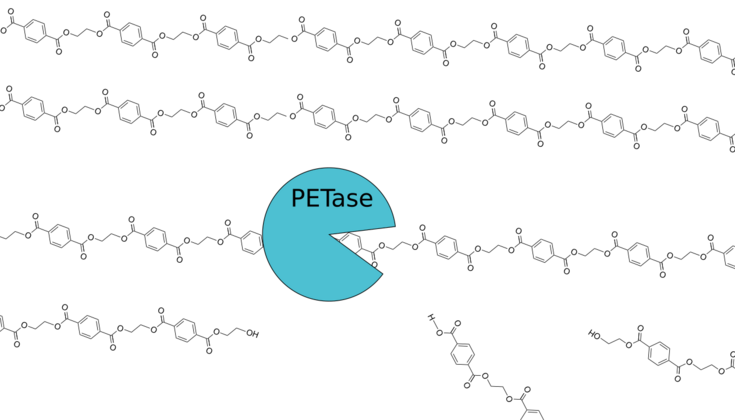Plastics active Enzymes for PET degradation
SUPERVISOR: Georg GÜBITZ
PROJECT ASSIGNED TO: Lukas CHALWATZIS
Polyethylene terephthalate (PET) is one of the most widely used plastics with a global market volume of 24.23 million metric tonnes in 2021. Its lightweight non-reactive material properties make it very useful for food packaging, drinking bottles, textiles, medical materials, clothing, automotive parts, and many other use cases. These same non-reactive properties have also prevented efficient recycling or biodegradation so far, which is a contributing factor to the global plastic pollution problem. The EU-funded REPurpose project aims to design an enzyme-based upcycling process, which creates new polymer building blocks from post-consumer PET materials. New polymers based on these building blocks could have tunable elastomeric properties without the need for additives and incorporate pre-planned degradation sites for efficient and indefinite recycling. These so-called “REP polymers” would therefore have a competitive advantage over fossil-based PET polymers.
As part of the PEPurpose consortium my dissertation focuses on finding and designing an endo-PETase that efficiently degrades PET into oligomers as building blocks for the new REP polymers.

